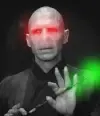Unsigned integer means an integer that hasn’t been cryptographically signed by the chain of blocks right?The verdict quotes this exchange (page 163):
Q: Just out of curiosity, do you know what unsigned means in that?
A: I do. Basically it’s unsigned variable, it’s not an integer with–
Q: With what?
A: It’s larger. I’m not sure how – I mean, on the stand here, I’m not sure how I’d say it, but –
Q: Take a wild guess.
A: How I would describe it, I’m not quite sure. I know what it is.
Q: Okay.
A: I’m not terribly good when I’m trying to do things like this. Writing it down would be different.
Q: Well, do you recall you mentioned that you had a book by Professor Stroustrup?
A: I do.
Q: You haven’t disclosed that book, but you have disclosed three other books about C++, so I want to take you to one of those. It’s {L1/199/1}, and could we go to page 47. Do you see that it explains that “unsigned” means that it cannot be negative?
A: Yes, I do understand that. Would I have thought of saying it in such a simple way? No.
one of the things that I really love about this is that, while there are indeed some nuances you can get into (platforms/archs, number theory, internal representations, …), it’s one of the rare computerwords in english that you could viably reason about on first principles without knowing much and get a sortacorrect answer
and yet
Unsigned integers are larger because… Because the containing variables don’t have a signature that crypto-statically constrains it to the lower set! (Yes that must be it)
“my computer’s so secure! it does mean I can only use 32-bit applications on this 64-bit cpu, but alas. all for security!”
(even typing that made me wince. I hope anyone who had to deal with 32->64 in any capacity some years ago doesn’t get hurt reading this)
it’s important to note, btw - and I didn’t know this until a couple of days ago - that Justice Mellor was an engineer before he went back to law school. Engineering degree from Cambridge. He is a technical guy and understood every tech detail in the trial. Can you imagine sitting through Craig Wright’s arrogant technobabble, knowing immediately what utter charlatanry this is and not being able to say so until the end.
wake up babe, new level of steelmanning just dropped
and here’s another 150pp on just his document fraud
in advance of asking this I’ll cop to not actually having followed Wright’s insane arc in detail much the last few years on account of life yaks, but
why the hell is he even trying? is there a big pile of seized bitcoins that he believes he can get access to if only he managed to dupe people?
like I’m not trying to legitimate any views or valuations here, but it’s just so … wat
From what I gathered it was about “since I invented blockchain now I own a percentage of every crypto project ever because intellectual property/patent law/vibes”.
I think he was also selling something? So clout and publicity.
I think he just started lying and then continued lying to cover up his previous lies. And he had a deep-pocketed backer in the form of Calvin Ayre.
yep
I wonder if at any point anyone involved (no matter how tangentially) in this process ever went “uh… guys…” and got (metaphorically) defenestrated for trying to pull the eject handle
Stefan Matthews apparently sorta tried, but
Just curious, now that crypto seems to be nearing the end of its destructive bubble life, is their any good ideas on who or what (if group, not suggesting aliens) Satoshi Nakamoto is or were?
nope. a standard pile of guesses, no more evidence for any of them (except that Craig isn’t)
<Scene from Spartacus>
“I am not Natoshi Sakamoto!” <crowd takes up the phrase and repeats it>
“his name was Natoshi Paulmoto”
the len hypothesis is one of the most coherent one I’ve heard, I think. there is a certain weight behind it in the form of “and that’s why the original coins never got transacted”
but even that entire is essentially unprovable barring a couple of extremely unlikely events happening (original drives of person still existing, the passwords being acquired from some deaddrop somewhere, etc etc)






